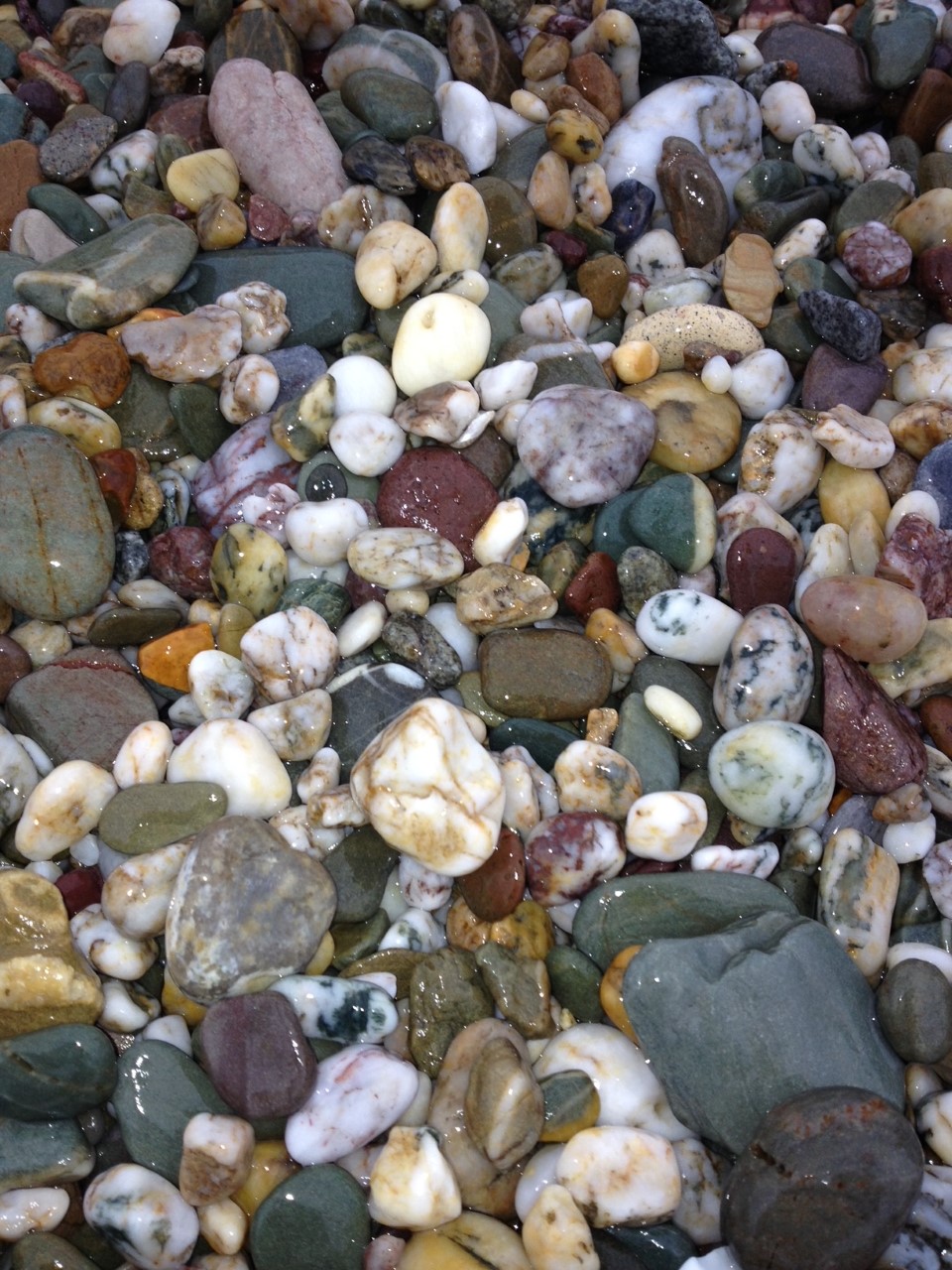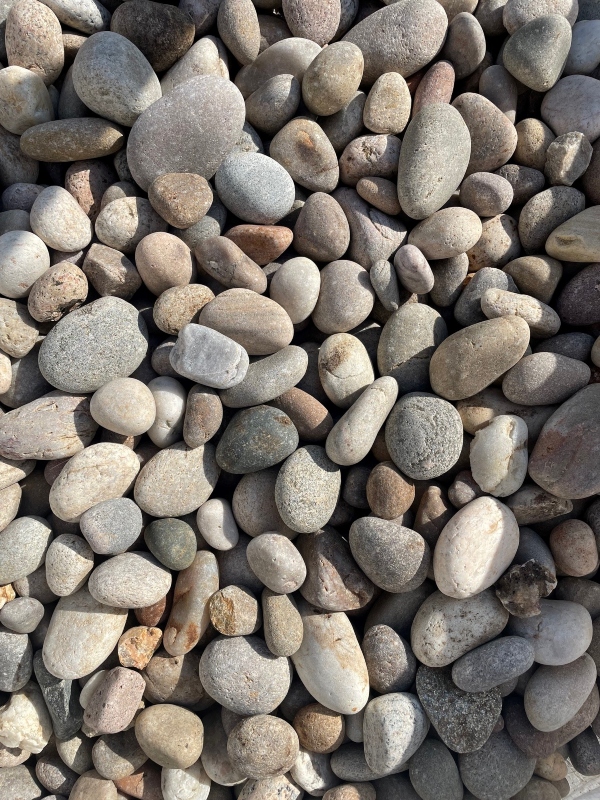Understanding the difference between Pebbles, Cobbles and Boulders can be quite confusing when trying to order the correct product with your supplier, especially when different suppliers use different and sometimes incorrect terminology. In the section below, I will explain the difference between these items and give some advice on their successful use within your garden.
The use of these different names, for what is essentially fragments of stone, milled round by rivers or the sea, is simply used to differentiate the different sizes, as seen below:

Naturally deposited Pebbles and Cobbles on Cawsand Bay Beech, Cornwall. The best range of different materials I’ve ever seen. Sadly, pebbles of this quality are very rare and I have never seen any for sale in the UK.
Using Pebbles / Cobbles in your garden
By far the most common type of pebbles and cobbles available to the landscape trade are Scottish Cobbles, which have been distributed across the whole of the UK for many decades. The Scottish cobbles supplied by Natural Stone and Timber are quarried from a site deep within the forests of Morayshire. These ancient forests grow on land that once formed the pre-historic coast of northern Scotland. These beautiful stones have been fashioned over millions of years by the tireless motion of the Moray Firth and River Spey.

Each cobble is unique, displaying its character through pleasing variations in colour, shape and texture. In a spectrum from sparkling white to jade black, encompassing perfectly smooth spheres through to textured ovoids.
Scottish pebbles and cobbles are a versatile product and can be used on numerous landscaping applications, such as:
- Small ornamental streams
- Planting areas
- Mulch on planting beds
- Paths and walkways
- Ponds and water features
- Decorative flower borders
The benefits of using pebbles and cobbles in your garden are extensive and include the below:
- Relatively inexpensive compared to other hard landscaping materials
- Reduces maintenance when used on beds and borders
- Improves drainage
- A very versatile product with many different applications
- Widely available throughout the UK
- Easy Installation for DIY or trade users
- Fish Friendly
- Improves drought resistance when used as a mulch on beds and borders

